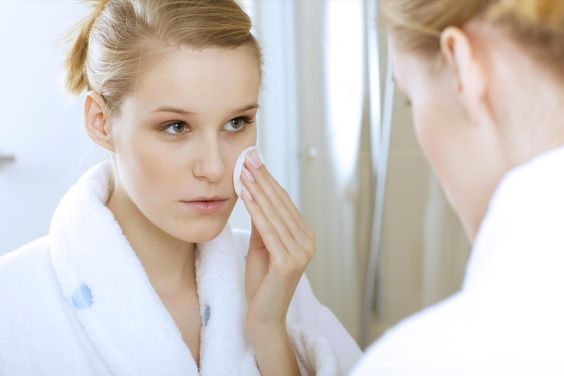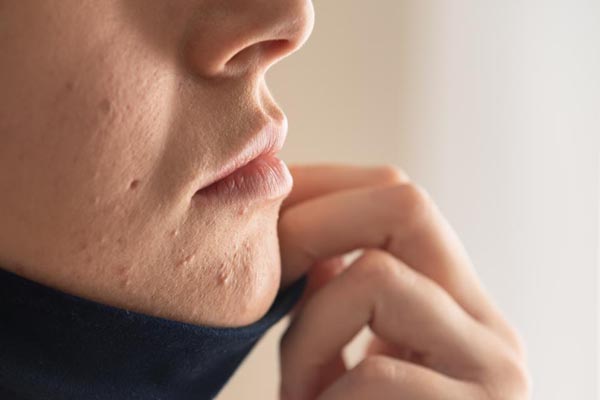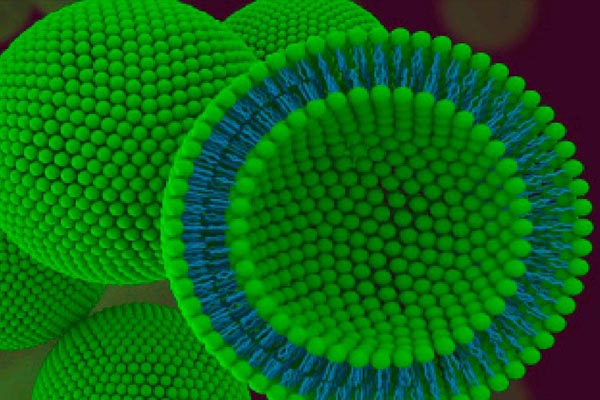Skin Exacerbation: Is your skin flaring up out of nowhere? Discover what causes skin exacerbation, how to soothe flare-ups fast, and simple tips to keep your skin calm and clear for good.
Why Is Your Skin Acting Up All of a Sudden? Let’s Talk About Skin Exacerbation (And Real Fixes That Work)
Ever looked in the mirror and thought, “What is going on with my skin?” One day, it’s fine. The next, it’s red, itchy, flaky—or worse, breaking out like crazy. If that sounds familiar, you might be dealing with something called skin exacerbation. But here’s the good news: you’re not alone, and there are real, practical ways to calm things down.
Let’s break it all down in simple, human terms. We’re diving into what skin exacerbation is, why it happens, and—most importantly—how to get your skin back on track.
What Exactly Is Skin Exacerbation?
In plain English, skin exacerbation means your skin condition is flaring up. If you’ve got eczema, psoriasis, acne, or even just sensitive skin, it can suddenly get worse. That’s an exacerbation. It’s like your skin is throwing a little tantrum—and it’s not fun.
Common Signs You’re in a Skin Flare-Up
Wondering if that breakout or dry patch is just random or something more? Here are some typical signs:
- Redness and inflammation that wasn’t there yesterday
- Dry, scaly, or flaky patches that feel rough to the touch
- Itchy areas that just won’t stop
- Burning or stinging sensations
- Worsening acne or rash-like bumps
- Cracked or bleeding skin in severe cases
Basically, if your skin feels like it’s having a meltdown, you’re probably in a flare.
So, What Causes These Sudden Skin Meltdowns?
Here’s where things get a bit tricky. Skin exacerbation isn’t caused by just one thing. It’s usually a combo of internal and external factors. Let’s dig into the biggest culprits:
1. Stress (Yes, It Really Shows on Your Skin)
Stress can mess with your hormones, which in turn messes with your skin. Cortisol levels spike, and your skin may produce more oil, leading to breakouts or inflammation.
2. Weather Changes
Cold, dry air can suck moisture right out of your skin. On the flip side, hot, humid weather can make you sweat more and clog pores.
3. Harsh Skincare Products
Some soaps, scrubs, or treatments might be way too harsh, stripping your skin’s natural barrier and causing irritation.
4. Allergens and Irritants
Dust, pollen, pet dander, and even certain fabrics can trigger flare-ups—mostly for those with eczema or sensitive skin.
5. Diet and Hydration
Too much sugar, dairy, or processed food? Not drinking enough water? Your skin notices.
6. Hormonal Fluctuations
Puberty, periods, pregnancy, menopause—hormones can swing and take your skin along for the ride.
Understanding Skin Types and Conditions
To handle flare-ups better, it helps to know your skin type and what condition you might be dealing with:
| Skin Type | Prone to |
|---|---|
| Oily | Acne, clogged pores |
| Dry | Flaking, itching, eczema |
| Combination | Both dryness and breakouts |
| Sensitive | Redness, irritation |
And if you’ve got a diagnosed skin condition like eczema, rosacea, psoriasis, or acne, your flare-ups will follow their own patterns.
Quick Fixes to Soothe an Ongoing Flare-Up
Alright, so your skin’s freaking out. What now? Here are some fast and effective ways to calm things down:
1. Simplify Your Skincare Routine
Go back to the basics. Skip the serums and acids for now. Stick with:
- A gentle, fragrance-free cleanser
- A soothing, hydrating moisturizer
- SPF during the day
2. Use Cool Compresses
They reduce swelling and redness. Just a clean washcloth, cold water, and five minutes of calm.
3. Avoid Scratching or Picking
Easier said than done, we know. But scratching makes it worse. Try patting itchy areas or using anti-itch creams.
4. Hydrate from the Inside Out
Drink plenty of water. Your skin cells need it to heal and function.
5. Skip the Makeup (If You Can)
Let your skin breathe while it’s recovering. If you must wear makeup, go for non-comedogenic, hypoallergenic options.
Long-Term Strategies to Prevent Flare-Ups
The best fix? Preventing flare-ups in the first place. Here’s how to keep your skin in chill mode over the long haul.
1. Stick to a Consistent Routine
Skin loves routine. Find what works for you and don’t mess with it too much. Avoid switching products often.
2. Watch for Triggers
Keep a little skin diary. When did the flare start? Did you eat something new, try a new lotion, or have a super stressful week?
3. Choose the Right Skincare Ingredients
Look for:
- Ceramides to repair your skin barrier
- Niacinamide to calm inflammation
- Hyaluronic acid for hydration
- Colloidal oatmeal for soothing itchy skin
4. Stay Moisturized
Even oily skin needs hydration. Use a moisturizer that fits your skin type.
Especially after showers.
5. Manage Stress Levels
Meditation, journaling, exercise—whatever works for you. Lower stress, better skin.
When to See a Dermatologist
Sometimes, at-home care just won’t cut it. If your skin is:
- Bleeding, cracking, or infected
- Painful to the touch
- Not responding to OTC treatments
- Impacting your mental health
…then it’s time to call in a pro. A dermatologist can prescribe stronger treatments or diagnose underlying issues.
How Diet and Lifestyle Play a Role
It’s not just about what goes on your skin—what you put in your body matters, too.
Foods That May Help:
- Fatty fish like salmon (anti-inflammatory)
- Avocados and nuts (healthy fats)
- Leafy greens (vitamins A, C, E)
- Berries (antioxidants)
- Water (always)
Foods That Might Trigger Flares:
- Processed sugar
- Dairy
- Alcohol
- Fried foods
- Spicy dishes (for rosacea folks)
The Mind-Skin Connection
There’s a real link between mental health and skin health. Anxiety and depression can both trigger or worsen skin issues. The more stressed you are, the more your skin tends to rebel.
So yes—self-care isn’t just trendy. It’s necessary if you want calm, happy skin.
The Role of Sleep in Skin Recovery
Ever notice how your skin looks better after a good night’s sleep? That’s because your body uses sleep to heal, including repairing your skin.
Try to aim for 7–9 hours a night. Bonus: a regular sleep routine also helps balance your hormones.
Over-the-Counter Products That Actually Work
Here’s a quick list of ingredients and products to look for:
| Concern | Helpful Ingredients |
|---|---|
| Redness | Aloe vera, chamomile, niacinamide |
| Dryness | Glycerin, ceramides, shea butter |
| Itching | Colloidal oatmeal, hydrocortisone |
| Acne flare-ups | Benzoyl peroxide, salicylic acid |
Just make sure to patch-test before trying anything new.
Natural Remedies That Can Help (But Use Caution)
Sometimes, the kitchen has what your skin needs. But not all “natural” remedies are safe. Here are a few that can help during a flare:
- Coconut oil – great for dry, flaky skin
- Honey – anti-inflammatory and antimicrobial
- Aloe vera – soothing and cooling
- Green tea compress – reduces redness
Just avoid lemon juice, baking soda, or anything that feels tingly or burns. That’s your skin saying “nope.”
Creating a “Skin First Aid Kit” at Home
Be ready for flare-ups by keeping these on hand:
- Fragrance-free cleanser and moisturizer
- OTC hydrocortisone cream
- Cold compress packs
- Anti-itch lotion
- Bandages (for cracked skin)
It’s like a mini toolkit just for your skin emergencies.
Final Thoughts: Be Kind to Your Skin
Your skin isn’t the enemy. It’s trying to protect you, even when it’s flaring up. Listen to it. Treat it gently. And if things don’t improve, don’t hesitate to ask for help.
The path to calm, balanced skin isn’t always a straight line—but it is possible.
FAQs About Skin Exacerbation
1. Is skin exacerbation the same as an allergic reaction?
Not exactly. Allergic reactions can cause skin flare-ups, but skin exacerbation is a broader term. It includes things like stress-induced eczema or hormone-triggered acne.
2. Can skin exacerbations go away on their own?
Sometimes they do, if the trigger is removed. But most of the time, you’ll need to treat it or adjust your routine.
3. How long does a flare-up usually last?
It depends on the cause. Mild flares might last a few days. More severe ones can take weeks to fully calm down.
4. Is it okay to exfoliate during a flare-up?
Usually, no. Exfoliating during a flare can make things worse. Wait until your skin has healed.
5. Can sunscreen make flare-ups worse?
Some sunscreens can irritate sensitive or flared skin. Look for mineral-based formulas with zinc oxide or titanium dioxide—they’re gentler.
References:
- American Academy of Dermatology (aad.org)
- National Eczema Association (nationaleczema.org)
- Mayo Clinic (mayoclinic.org)
- Healthline Dermatology Section (healthline.com/health/skin)





